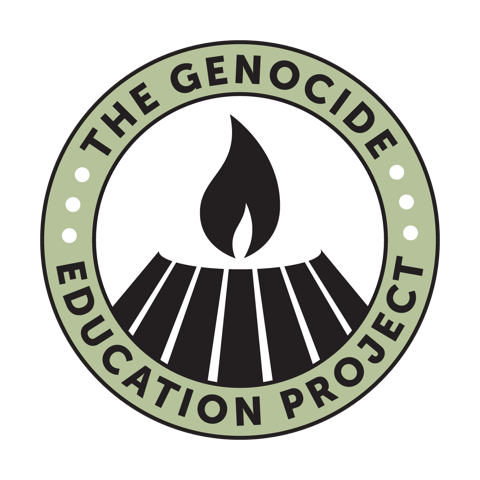Providence, RI, April 2014 – The Genocide Education Project (GenEd) Rhode Island branch co-chairs Pauline Getzoyan and Esther Kalajian provided their expertise to area events highlighting genocide and human rights during the month of April, which includes commemoration of the beginning of the Armenian Genocide, Holocaust, and the Rwandan Genocide.

Genocide Education Workshop at Armenian Youth Day
National History Day
Getzoyan and Kalajian served as judges for a National History Day in Rhode Island contest of exhibits, documentaries, and websites based on the theme of genocide, created by middle and high school students. The contest was hosted by the Graduate Program in History at Providence College and the Rhode Island Social Studies Association.
Of 12 contest entries, two prizes were awarded. The junior division winner was Kristina Davtian, an eighth grade student at St. Peter School in Warwick, RI, whose project was a website entitled, “Immigration: Rights and Responsibilities.” Kristina’s website addressed immigration as it pertained to human rights violations and times of war, and it included an entire section on the Armenian Genocide and how it impacted immigration to the United States.
The senior division winner was Amanda Carberry, a ninth grade student at Narragansett High School in Narragansett, RI. Amanda’s project was a documentary entitled, “Exterminate the Cockroaches: The Rwandan Genocide and the Responsibility to Protect.” “On the occasion of the 20th anniversary of the beginning of the Rwandan Genocide, Amanda’s project was timely and very effective,” said Getzoyan, who joined Kalajian in presenting the winners with their awards, an autographed copy of Chris Bohjalian’s The Sandcastle Girls and $50.00 cash, at the award ceremony on Monday, April 7 at Winman Jr. High School in Warwick, RI.
Armenian Youth Day
Getzoyan and Kalajian presented a genocide education workshop at Armenian Youth Day, on April 22, hosted by the Armenian Martyrs’ Memorial Committee of Rhode Island. Addressing children aged 7-14, the speakers focused on teaching the definition of genocide, as well as some of the stages of genocide and their relationship.

2014 Genocide Educator of the Year, Lisa DerManouelian (at podium) with GenEd RI branch co-chair, Pauline Getzoyan
Getzoyan and Kalajian discussed classification, the issue of identity and the idea of “us vs. them.” The students filled out identity charts with their names and interests, which they then shared with each other to understand the concept of how they may be viewed by others versus how they see themselves. This led to the second stage of genocide, symbolization, which included showing the students images of different symbols, such as sports logos, fraternity letters, and finally swastikas, the yellow Star of David, and gang graffiti.
During an activity illustrating the fifth stage of genocide, polarization, students were given blue or green paint chips. After some discussion about “favorite” chip color, Getzoyan and Kalajian chose students with the blue chips to join them and provided them snacks. After all the “blue” students took their snacks, the “green” students were asked how they felt about being excluded. The activity demonstrated for students the feeling of polarization which led to a discussion of bullying, which some of the students had experienced. This led to a related discussion of about how to react when being bullied or witnessing bullying. Getzoyan and Kalajian introduced the final stage of genocide, denial, in relation to taking responsibility for one’s actions and becoming “upstanders,” instead of bystanders. (All the students were given the snacks at the end of this activity.)
Genocide Educator of the Year
The Genocide Education Project – Rhode Island Branch presented the Genocide Educator of the Year Award to Lisa DerManouelian during the Armenian Genocide commemoration on Sunday, April 27th, hosted by the Armenian Martyrs’ Memorial Committee of RI (AMMC) at the Armenian Genocide monument at North Burial Ground in Providence. The award, which includes a framed certificate, along with a $500.00 stipend, is made possible through the generosity of the AMMC and the ANC of RI. DerManouelian, a middle school literature teacher at St. Peter School in Warwick, RI, was selected for her skill at incorporating genocide education in her curriculum, even though she is not a social studies or history teacher. According to Joan Sickinger, principal of St. Peter School, Lisa has brought many technological advances to the school, and two of her students were winners this year for their websites at the Rhode Island History Day event, which allowed them to travel to Washington, DC, to attend the National History Day event. DerManouelian guided her students through the reading and study of the biographical book about an Armenian Genocide survivor, The Road from Home, by David Kherdian.
